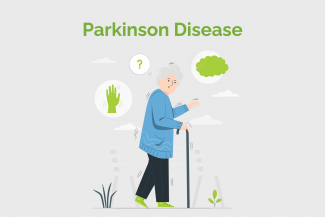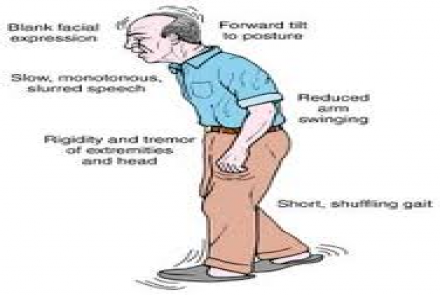
Diagnosing Parkinson’s
There is no specific test to identify Parkinson’s and it is difficult to diagnose especially in the early stages. The doctor will take note of your medical and neurological history and ask you to perform certain movements and tasks, which is part of the neurological exam. Physical examination is a key criterion for diagnosis. The four main movement related symptoms characteristic of Parkinson’s are often the main diagnostic criteria on physical examination. These are:
1. Tremors: are uncontrollable movement like shaking or back and forth movements of hands and legs. Can affect jaws and head in severe condition. Occurs only during rest.
2. Postural Instability: Difficulty balancing in sitting or standing position. Increased risk of falling.
3. Bradykinesia: is slowness of movement and speed. This occurs in reduction of involuntary movements like swinging of the arms while walking or blinking of the eyelids. It also reduces reaction times, or delayed initiation or freezing of a physical movement. This slowness is seen in doing simple tasks like buttoning shirt, brushing teeth, cooking. Parkinson’s patients may often appear clumsy.
4. Muscular Rigidity: Stiffness of muscles in arms, legs, trunk and neck causing discomfort and resistance in moving. Can also cause pain, cramps and balance issues. You will have problems in moving arms, carrying out daily tasks, turning, breathing due to chest muscle stiffness and frequent respiratory infections. When the facial muscles get stiff, it leads to a mask-like appearance of the face or medically known as Parkinson’s mask or hypomimia. Facial masking brings about difficulty in chewing, swallowing and speaking. Showing expressions like smiling or frowning become reduced over time leading to a blank stare, drooling, jaw tightness etc.
Parkinson’s disease must be differentiated from Lewy body dementia as there is common movement related symptoms. But Lewy body dementia is associated with fluctuations or changes in concentration and awareness and recurrent visual hallucinations or delusions.
To read on how to deal with diagnosis of Parkinson's: http://www.patientsengage.com/conditions/early-stage-parkinsons-dealing-diagnosis











